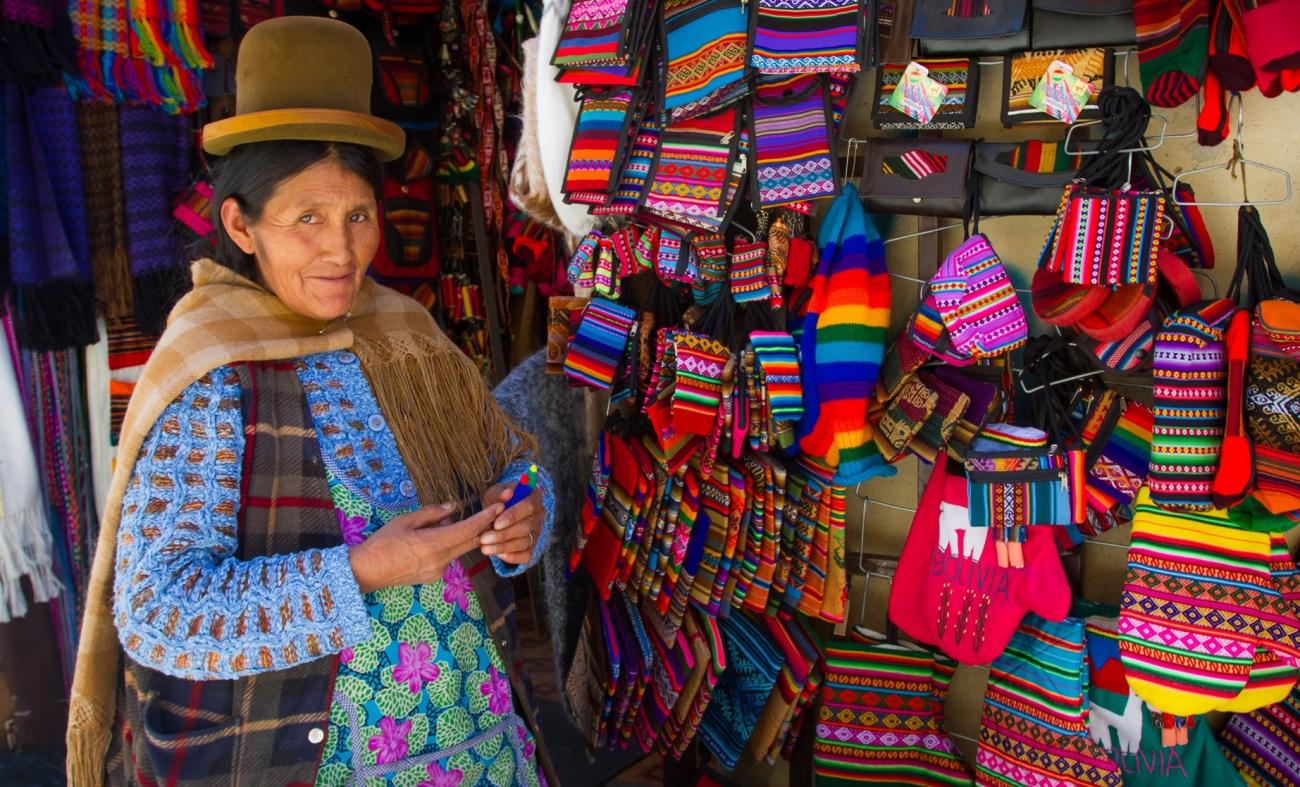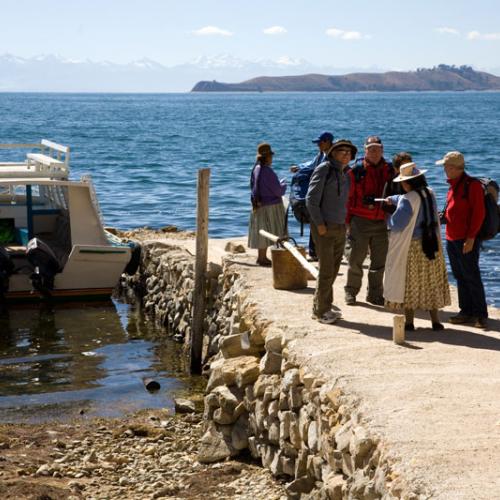Tourism as an engine of gender-inclusive and sustainable development in Bolivia

Context
Bolivia has an abundance of natural resources. For centuries the country has relied on exporting commodities, such as minerals, natural gas, and soybeans, to generate income. However, mining is highly polluting, agricultural expansion causes deforestation, and natural gas reserves are running out. What’s more, these activities create jobs almost exclusively for men.
Tourism can potentially be an engine of more sustainable and gender-inclusive development, easing the transition towards a low-carbon economy. Between 2006 and 2019, the income generated by inbound tourism in Bolivia increased at a rate greater than 10% annually, more than double the rate of overall GDP growth. By 2019, international tourism had become the fourth most important export product, despite the sector receiving very little public investment.
More than 75% of the population employed in tourism are women, and about 72% of all labour income accrues to women. While there is an earnings gap in the tourism sector (women earn 21% less than men per month), it is smaller than in other sectors (for example, in agriculture women earn 48% less).
Objectives
The long-term goal of the project is a transformation from traditionally male-dominated, extractive economic activities to more gender-inclusive and environmentally-sustainable activities, grounded in Bolivia's rich natural and cultural assets. This will create a shift from an antiquated and unhealthy grey-black-brown economy to a youthful, vibrant purple-green-orange economy that can lead Bolivia’s transition to a zero-carbon economy.
To achieve this goal the project created a Bolivian Observatory of Sustainable Tourism (ORBITA) which will gather data and generate information on tourism, gender, and sustainable development in Bolivia. It will build alliances to support the recovery and growth of the sector, train small and medium tourism businesses in new digital technologies for the tourism industry, and promote opportunities for women in the sector.
The project will provide empirical evidence to guide public and private investment in tourism. This information will be made available to the public through its website: http://orbita.bo/. It will serve as a hub to unite public, private, and academic efforts to establish tourism as an essential engine of gender-inclusive and sustainable development in Bolivia.
Partners
The lead Institution for the project is SDSN Bolivia (UPB), collaborating with IES Foundation.
SDSN Bolivia is an independent institute set up to promote sustainable visions and solutions for long-run development in Bolivia. It is part of the global Sustainable Development Solutions Network. IES Foundation is a private non-profit institution with over 30 years of experience working to promote and consolidate dynamic enterprises with social impact in Bolivia.
Activities
Project outputs include:
- A research paper on the environmental footprint of tourism in Bolivia;
- 25 undergrad and graduate theses supported by ORBITA on topics related to tourism, gender and sustainable development;
- A document on the mixed-method evaluation of the effectiveness of business advisory services and digital training; and
- A synthesis report with policy recommendations for promoting sustainable tourism in Bolivia, including innovative financing options.
Contact
Lykke E. Andersen, SDSN Bolivia Executive Director:
Lykke.E.Andersen@sdsnbolivia.org


